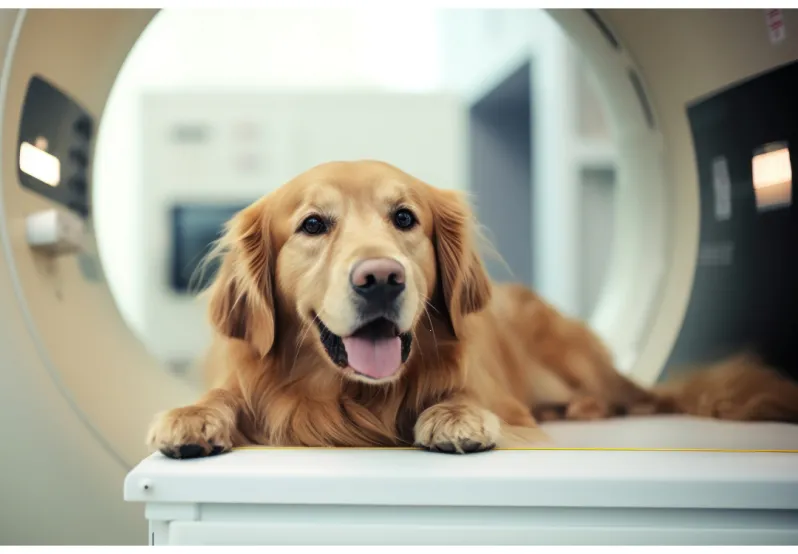Riluzole for Canine Degenerative Myelopathy (DM)
This study aims to determine whether treatment with oral Riluzole prolongs the ability to walk in dogs with a clinical diagnosis of canine Degenerative Myelopathy (DM).
Dogs will be screened at the screening visit (day -14 to day 0) and eligible dogs will be enrolled on Day 0 at which point baseline clinical data will be collected and randomization will occur. Dogs will begin dosing on day 1. Dogs will have follow-up physical and neurologic exams, gait evaluations, bloodwork and urinalysis, and behavioral testing at 1, 3, 6, 9, and 12 months (+/- 10 days); they will also have spinal fluid collected at 6 months, 12 months, and at time of euthanasia where possible. It will be strongly encouraged that dogs have bloodwork repeated 2 weeks after the initial dose escalation, but this bloodwork will be performed with their family veterinarian with the cost covered by the owner. For dogs that have not met a study endpoint by 12 months, their dosing and evaluation will continue every 3 months until a study endpoint is met.
The duration of the study is expected to be approximately 2 years.

Client Compensation:
The study will cover most costs. You will be required to pay for the standard diagnostics that are part of pre-enrollment and for one set of blood work performed during the study, the cost of this standard diagnostic workup is approximately $2500-3500. If your dog experiences a study-related adverse event, the cost of medical care will be covered by the study up to a total amount of $500.
Potential Medical Benefits:
DM carries a poor long-term prognosis, and no effective specific therapies are currently available. Results in experimental models and human ALS trials have demonstrated that Riluzole can provide some benefit, by way of increased survival time, but it is possible that your dog may not benefit from this study; either because the treatment is ultimately shown not to be effective in dogs or because your dog receives the placebo/control.
Potential Medical Risks:
General anesthesia and a spinal tap are required at three different time points during the study. While generally safe, risks of anesthesia and spinal tap include allergic reactions to the medications administered for anesthesia, bleeding or trauma to the spinal cord caused by the spinal tap, and possibly death in extreme cases. The incidence of these problems is low in an otherwise healthy patient.
What qualifies my pet for enrollment?
Inclusion Criteria:
Eligible patients (any breed of dog) must meet all the following:
• Strongly Suspected to have DM based on MRI and CSF findings, and genetic testing.
• Able to walk without assistance and only mild weakness present.
• No other major medical problems.
• Complete blood count and serum chemistry without clinically significant abnormalities, as determined by the veterinarian.
Exclusion Criteria:
• Dogs that are found to have significant compressive lesions on MRI, moderate to severe weakness, blood work abnormalities, or other ailments including a cancer diagnosis.
• Dogs that are currently prescribed medications such as amantadine, ketamine, corticosteroids, sodium channel blockers, or cardiac medications.
Diagnosis/Condition Being Studied:
Degenerative Myelopathy (DM)
Intervention:
Riluzole treatment
Primary Outcome:
The time to non-ambulatory status for patients, spasticity, altered sensation, and CSF and serum samples while enrolled in the trial.
Primary Outcome Measure:
The time to non-ambulatory status will be evaluated by comparing the two treatment groups and the time from enrollment until the dog becomes unable to walk (take 10 steps unassisted) without assistance. Spasticity will be measured using an electronic handheld dynamometer and altered sensation will be measured through quantitative sensory testing using a von Frey electronic aesthesiometer.
Primary Outcome Endpoint:
The goal of this study is to develop new treatments and techniques that may benefit future patients.
Pre-screening Questionnaire
If you believe your pet may be eligible to enter this study, please fill out a pre-screening questionnaire.